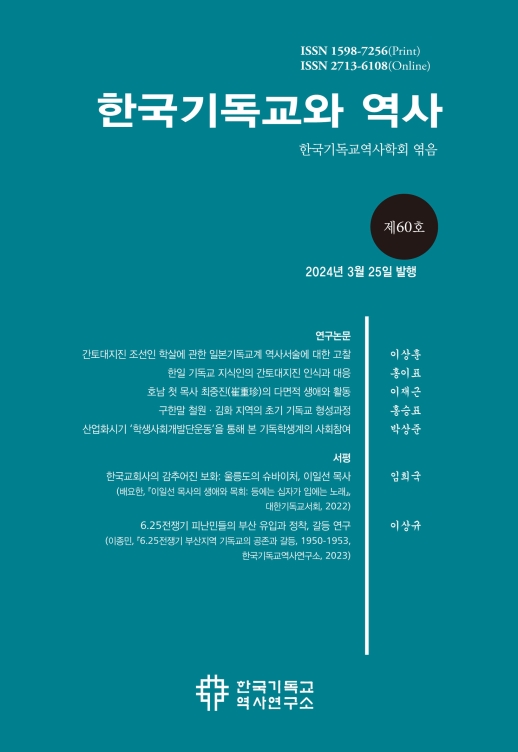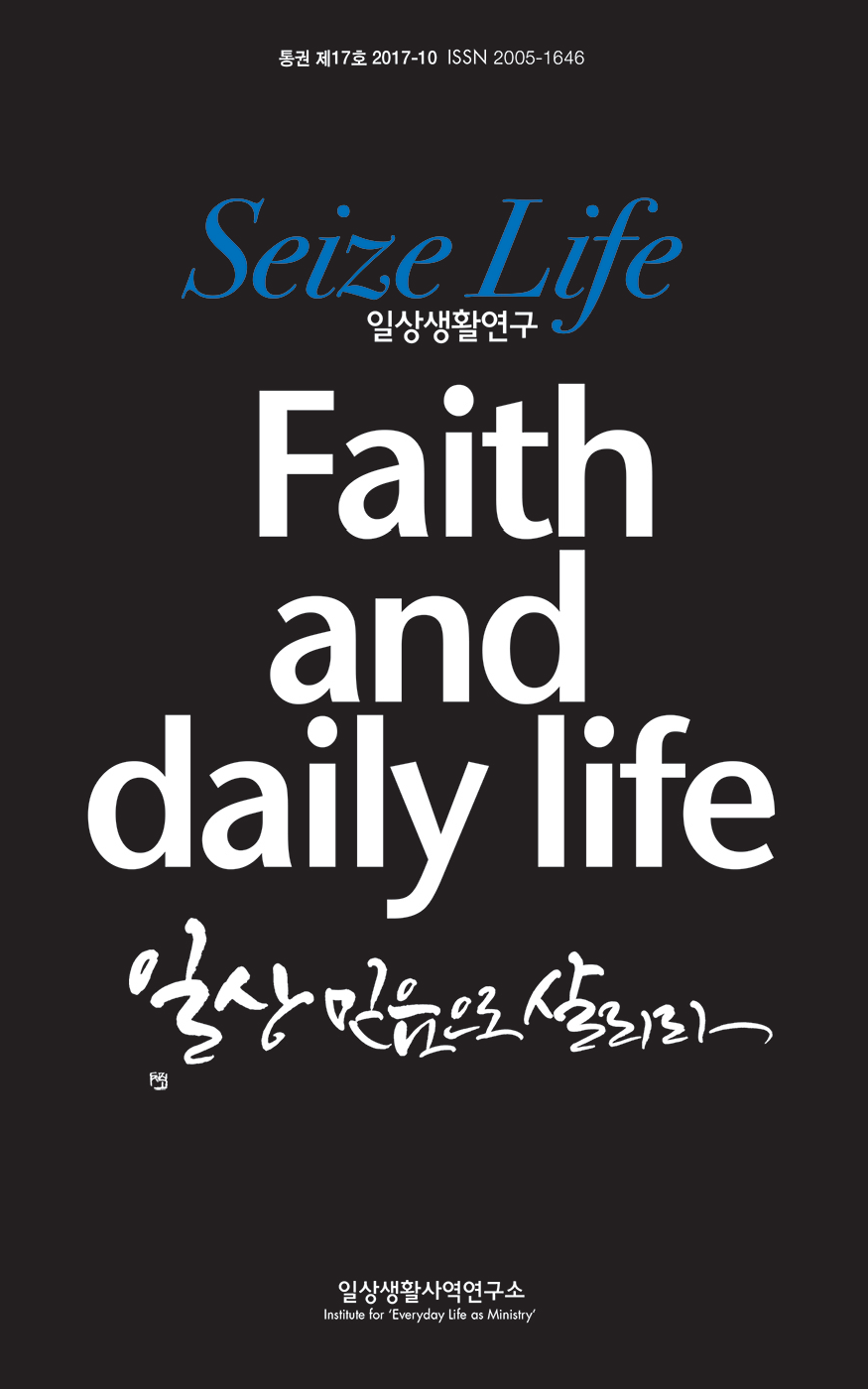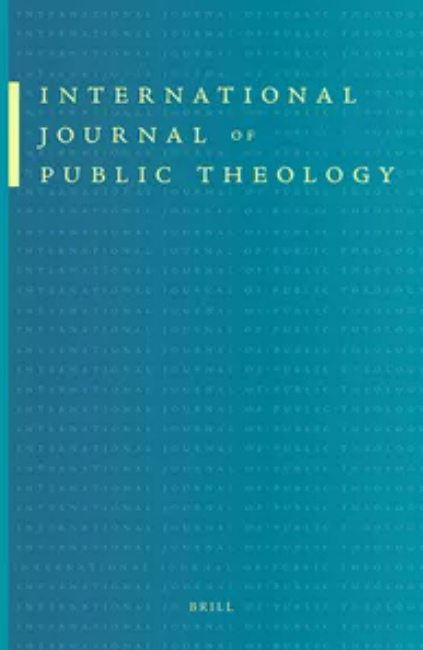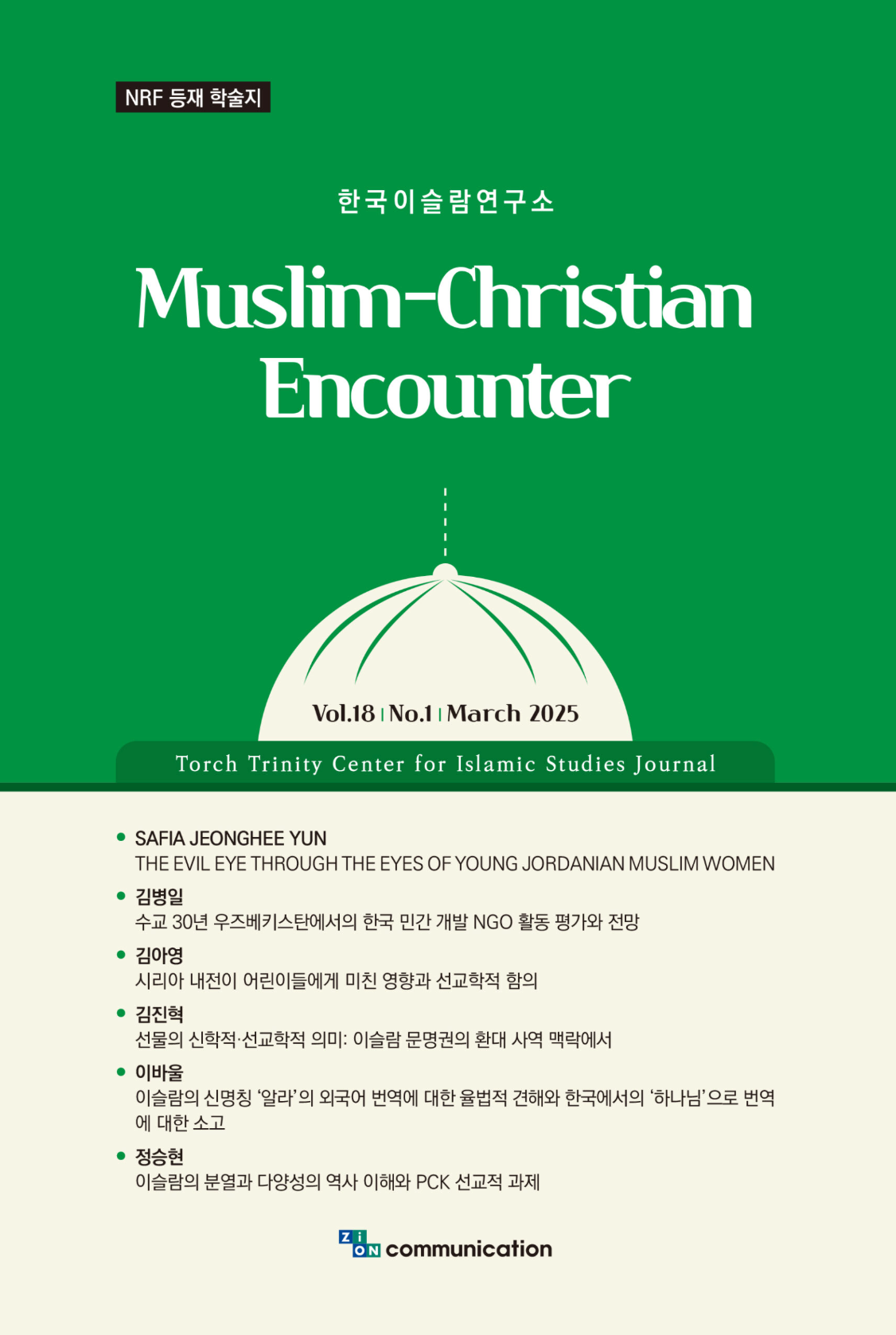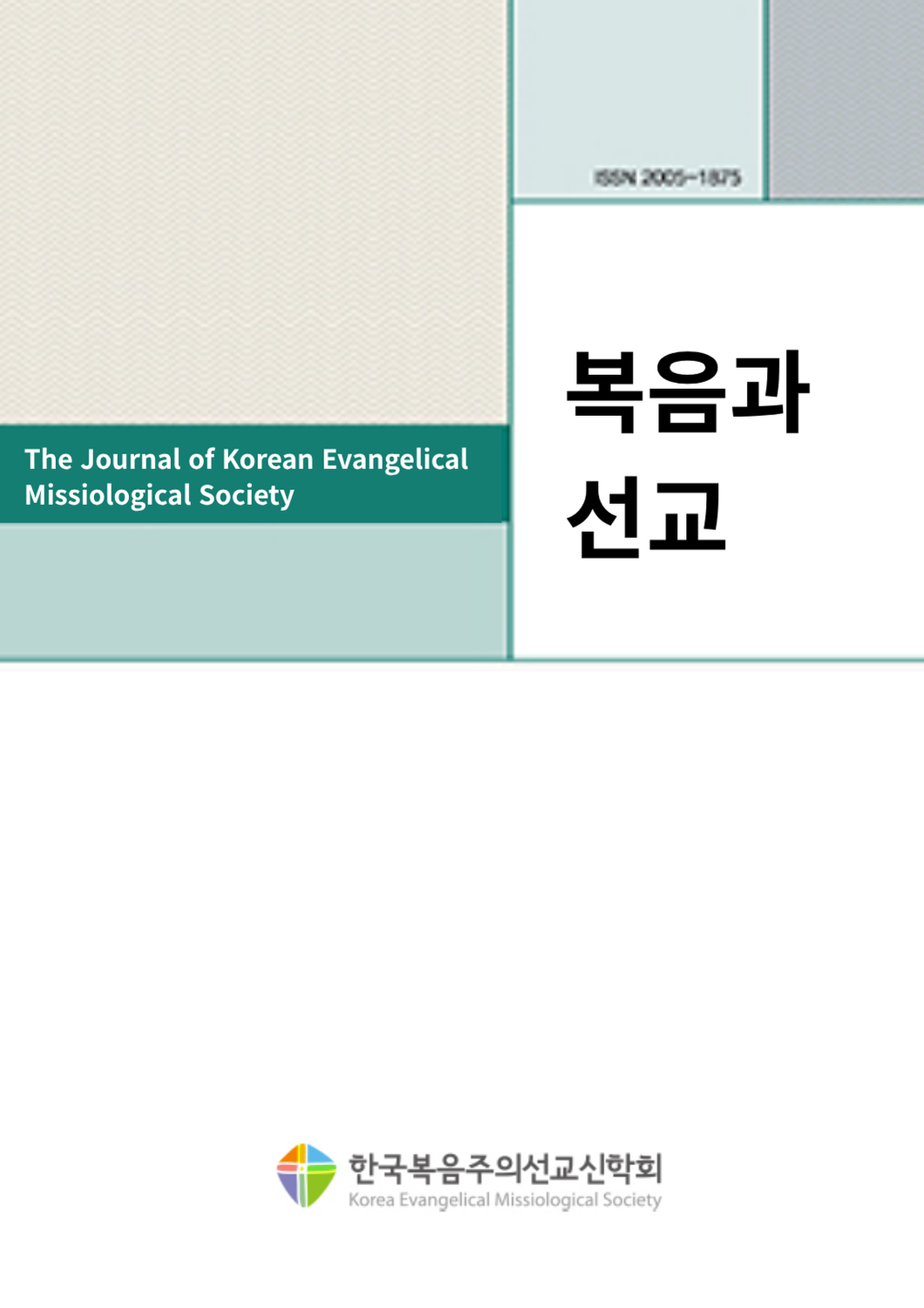김필수, 윤식명과 함께 호남의 첫 한국인 3인 목사 중 하나였던 최중진은 성인이 된 후, 동학농민혁명과 의병운동에 참여했다. 25세 이후 약 25년 간 천주교회 신자, 장로교회 목사, 자유교회 목사, 일본조합교회 목사를 거치며 종교인으로 활동했다. 그러나 이 25년 기간 안에 서로 성격이 다른 네 교회를 넘나들었고, 그 중간에는 한 차례 장로교회에 복귀하는 일도 있었다. 젊음의 시대를 지나 50대가 시작된 후에는 노동공제회, 청년회, 형평사, 신간회 등의 사회운동가, 조선일보 언론인 등을 역임하며, 종교와는 거의 관계 없는 사회운동가로 노년기 10여 년을 보냈다. 그리고 마지막에는 다시 감정의 극적 변화를 겪으며 장로교회로 복귀하며 인생을 마무리했다. 그는 일제강점기 한국 기독교 목회자, 심지어는 한국 기독교인 대부분이 걷지 않은 파란만장한 인생 여정을 걸었다. 그의 삶을 이토록 변화무쌍하게 만든 요인은 무엇이었을까? 먼저, 그의 삶에는 일관성이 있었다. 이 일관성의 1차 원인은 무엇보다도 그의 내적 개인 기질에서 찾을 수 있을 것이다. 최중진은 열정적인 다혈질의 행동가였다. 그는 위기에 처한 민족과 국가의 위상 회복에 대한 열정으로 동학과 의병운동에 참여했다. 종교인이 된 후에는 가장 열정적인 신자가 되어, 이른 시기에 천주교 영세와 견진을 받았다. 개신교로 개종한 후에는 천주교인과의 다툼에서도 가장 선봉에 설만큼 투쟁적 열정을 보여, 선교사의 제지가 필요할 정도였다. 그 누구보다도 열의를 다해 자기 마을과 이웃 지역에서 전도하면서, 1위 소책자 판매자가 되었고, 단기간에 급성장한 예배 모임을 이끌고, 단기간에 급전을 모아 교회당을 지었다. 영혼구원의 열정만큼이나 미래세대 양성의 열정도 커서, 무리해서 소학교를 짓고 교사의 학비를 댔다. 이 과정에서 상당한 부채를 졌다. 그는 누구보다도 이른 시기에 신학생으로 추천받아, 호남 첫 목사가 되었다. 그러나 그 열정이 문제가 되었다. 더 많은 순회 구역, 더 많은 신자, 더 많은 다음 세대를 양육하고 더 많은 일을 하는 교회를 꿈꾸었지만, 이 모든 것은 결국 재정 부담을 유발했다. 그에게는 선교사들이 견지한 엄격한 입교 기준과 치리 절차가 교인 증가의 장애 요소로 보였다. 결국 매서인과 조사, 신학생 시기에 쌓였던 불만이 폭발하여, 목사 안수 후 불과 4개월만에 자유교회 사건을 일으켰다. 1914년 봄 출감 후 여름에 열린 전라노회 앞에서의 회개도 너무 급작스러웠다. 이어지는 조합교회 합류도 10월에 전라노회 강도사로 임명받은 지 불과 몇 개월 후 이루어진 순간의 선택이었다. 1920년대의 시작과 함께 종교인에서 사회운동가로 완전히 변모한 사실도 변화에 예민한 그의 기질을 보여준다. 3·1운동 직후 총독부가 ‘문화통치’로 식민지 정책을 전환한 1920년대 한국에서 대유행하게 된 각종 사회운동도 종교에 흥미를 잃은 그가 다시 열정을 태울 무대였다. 최중진은 정읍에서 거의 모든 사회운동과 언론운동에 참여했다. 사회운동에서 은퇴한 직후 60세가 된 그가 1931년의 김익두 부흥회에 참석하여 다시 기독교인으로 돌아가고 전북노회에 복귀를 신청하는 과정도 그의 기질을 생각한다면 충분히 일관성이 있다. 한편, 최중진의 감정에 충실한 다혈질적 기질만을 수많은 변곡점에서 그가 내린 많은 선택의 유일하게 일관된 동인이라고 주장할 수는 없을 것이다. 외적 요인, 즉 경제적이고 사회적인 요인도 분명이 있었다. 최중진이 참여한 종교운동과 사회운동의 교리와 강령이 외친 구원, 자유, 해방, 평등, 애국, 애민, 독립, 자립, 행복이라는 가치는 그 운동에 참여하는 자신을 그 운동의 대변자로 인식하게 만들었다. 또한, 늘 일관되었다고 말하기는 어려울 수 있지만, 그가 동포, 특히 가난하고 어려운 삶을 사는 농민과 노동자의 처지에 애정과 관심을 갖고, 이들이 자유인으로서 자립하고 권리를 찾도록 돕는데 일생을 바친 인물이었다는 평가도 가능할 것이다.
One of the first three Korean Protestant pastors in Honam, along with Kim Pilsu and Yoon Sikmyeong, Choi Jungjin participated in the Donghak Peasant Revolution and the unofficial army in the resistance against Japan. For about 25 years after the age of 25, he was a Catholic layman, Presbyterian pastor, Free Church leader, and Japanese Congregational minister. Into his fifties, he spent the last decade of his life as a social activist with little to do with religion, serving as a member of the Labour Union, the Youth Union, the Equity Society, the Singanhoe, and as a journalist for the Chosun Ilbo. He ended his life with a dramatic change of heart, returning to the Presbyterian Church. His life's journey took him on a path that few Korean Christian pastors, or even most Korean Christians, had traveled during the Japanese occupation. What made his life so transformative? First, there is consistency in his life. The primary source of this consistency can be found in his internal personal temperament. Choi was a passionate and fiery activist, who participated in the Donghak and unofficial military movements because he was passionate about restoring the status of his people and country in crisis. Once he became a religious man, he became the most fervent believer, receiving Catholic baptism and confirmation at an early age. After his conversion to Protestantism, he was so militant that he took the forefront in quarrels with Catholics that he needed to be restrained by missionaries. He evangelized in his village and neighborhood with more zeal than anyone else, becoming the number one tract seller, leading a rapidly growing worship group, and raising money to build a church hall in a short time. As passionate as he was about saving souls, he was equally passionate about training future generations, so he hastily built a small school and paid for the teacher's tuition, incurring considerable debt in the process. He was recommended as a seminarian earlier than anyone else and became the first pastor in Honam. But his zeal proved to be a problem. He dreamed of a church with more circuits, more believers, more nurturing of the next generation, and more work, all of which ultimately led to financial strain. The strict admission standards and governance procedures of the missionaries seemed to him to be an obstacle to membership growth. Eventually, the dissatisfaction that had built up during his years of pastoral training exploded and led to the Free Church Incident just four months after his ordination. However, his two years of imprisonment eventually wore down the Free Church's strength. His repentance before the presbytery after his release in 1914 was too hasty, and his subsequent joining of the Japanese Congregational Church was a spur-of-the-moment choice. The fact that he completely transformed from a religious man to a social activist at the beginning of the 1920s also shows his sensitivity to change. The social movements that became widespread in Korea in the 1920s, when the Japanese colonial government switched its colonial policy to "cultural rule" shortly after the March 1st Movement, were also a stage for him to rekindle his passion after losing interest in religion. Choi participated in almost every social and journalistic movement in Jeongeup. It is also consistent with his temperament that, at the age of 60, shortly after retiring from the social movement, he attended the Kim Ikdu’s revival meeting in 1931, became a Christian again, and applied for reinstatement to the Presbytery of Jeonbuk. On the other hand, it cannot be argued that Choi's emotionally volatile temperament was the only consistent driver of his many choices at numerous junctures. There were certainly external factors, both economic and social. The values of salvation, freedom, liberation, equality, patriotism, independence, self-reliance, and happiness proclaimed by the doctrines and codes of the religious and social movements in which Choi participated led him to perceive himself as a spokesperson for those movements. This heightened self-awareness created a sense of pride, resonance, and self-respect. It may also be said, though not always consistently, that he was compassionate and concerned about the plight of his fellow countrymen, especially the poor and hard-pressed peasants, and laborers, and devoted his life to helping them to become self-reliant and find their rights as free men.


